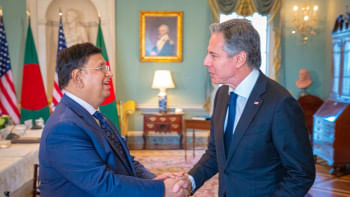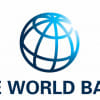What’s our priority in the Indo-Pacific Outlook?

On April 24, 2023, Bangladesh formally announced its "Indo-Pacific Outlook" (IPO) to the world. Together with almost all other Indo-Pacific foreign policy doctrines of the US, UK, Japan, Australia, India, and other developed nations, Bangladesh now openly shares a "vision" of "a free, open, peaceful, secure, and inclusive Indo-Pacific for the shared prosperity for all."
The timely release came right before the prime minister began her three-nation diplomatic visit to Japan, the US, and the UK, and right before the World Bank inked a $2.25 billion loan for five new megaprojects to be implemented over the next five years.
A primary analysis of the outlook confirms the various speculations that Bangladesh would not be tilting West and would remain adamant about its foreign policy ideal of non-alignment. In this regard, the outlook primarily emphasises the necessity of peace and stability in the Indo-Pacific and wishes for military de-escalation and a boost in regional connectivity and economic cooperation. Even the term "outlook" showcases Bangladesh's hesitancy to fully commit to the concept of the Indo-Pacific and openly declare substantive foreign policy positions.
This is to be expected as Bangladesh is still attempting to maintain a careful balance in the tripolar regional power struggle among the Western allies, India, and China. To fully commit to the notion of the Indo-Pacific would also acknowledge the anti-China dimension of the various Indo-Pacific Strategies (IPS) drafted by the US and its allies. Therefore, certain careful omissions have been made in the IPO, as compared to various other IPS, thus enabling sufficient strategic and rhetorical ambiguity to maintain relations with both superpowers.
Often, what is the most impactful in a statement are the words that are not said. Regretfully, some of the omissions made in the IPO paint a bleak picture of the government's direction for our country. Unlike almost all other IPS, Bangladesh's IPO does not include a single mention of terms such as "commitment to promoting democracy" and "collaborating to fight corruption." There is also no direct mention of the Rohingya refugee crisis, arguably the biggest security and environmental threat Bangladesh faces right now. There is a mention in the outlook's guiding principles of cooperating to ensure fundamental rights and freedoms. However, this point reads hollow as Bangladesh continues to ignore all international chagrin regarding its abuse of laws, such as the Digital Security Act (DSA), to persecute and harass journalists and opposition politicians.
There is speculation that this IPO is merely an attempt to appeal to Bangladesh's Western development partners, who are growing increasingly frustrated with the lack of cooperation and the increasingly hostile rhetoric of the ruling party leadership, especially against the US. However, the IPO's glaring omission of the very issues that are causing friction between the parties might cause the gesture to feel too little too late.
We simply have to look at what the priorities are for the three nations the prime minister approached right after approving the IPO to see the difference in priorities.
The timely release came right before the prime minister began her three-nation diplomatic visit to Japan, the US, and the UK, and right before the World Bank inked a $2.25 billion loan for five new megaprojects to be implemented over the next five years.
In Japan's published foreign policy paper on its Indo-Pacific strategy titled "Priority Policy for Development Cooperation," it is stated that "stable growth and a sound society in countries that share such universal values as freedom, democracy, and the rule of law – notably ASEAN countries – are important factors for a more stable international environment and closer relations between these countries and Japan. To this end, Japan will extend support for developing judicial and legal systems, capacity building of law enforcement authorities, government officials, and public broadcasting stations as well as the prevention of corruption."
In the paper released by the White House titled "Indo-Pacific Strategy of the United States," it is outlined in detail how the US plans to make investments in democratic institutions, free press, and a vibrant civil society in Indo-Pacific nations. "The United States will bolster freedom of information and expression and combat foreign interference by supporting investigative journalism, promoting media literacy and pluralistic and independent media, and increasing collaboration to address threats from information manipulation," the paper reads. It also outlines the need to improve fiscal transparency in the Indo-Pacific to expose corruption and drive reform. The paper goes on to state, "Through our diplomatic engagement, foreign assistance, and work with regional organisations, the United States will be a partner in strengthening democratic institutions, the rule of law, and accountable democratic governance."
Regarding the UK's Indo-Pacific Tilt, Foreign Secretary James Cleverly gave a speech at the Milken Institute Asia Summit, where he stated, "The UK and many Indo-Pacific countries are committed to shared values. Our commitment to sovereignty and territorial integrity, and freedom from economic coercion. Our shared beliefs in the value of democracy and open markets. The UK is committed to working with partners, old and new, in defence of those values. Which is why we support ASEAN's efforts to restore peace and democracy in Myanmar. And it's why we have worked so hard to respond robustly to Russia's invasion of Ukraine."
Even if we look at Canada's Indo-Pacific Strategy, which some claim to be more aligned with Bangladesh's core foreign policy values, its official position still emphasises its commitments by stating, "To strengthen our international assistance, Canada will… support efforts toward democracy, inclusivity, accountable governance and sustained economic growth, helping key countries in the region."
As it stands now, it seems unclear whom this Indo-Pacific Outlook is meant to reassure, if that was the point of it in the first place. It may very well have been that the current iteration of Bangladesh's IPO was wrung out due to mounting pressure from the Western power bloc, and thus the rhetoric was intentionally left non-committal. Or perhaps it was simply a half-hearted attempt on the part of Bangladesh to appease development partners by adopting the slogan of the "Free and Open Indo-Pacific." However, not only does the IPO not take a strong position in the great power rivalry between the US and China, it also does not provide any action plan to ensure that democratic values will be fostered by Bangladesh, which is undoubtedly one of the key pillars of all the various IPS. Needless to say, it is quite doubtful that this iteration of the IPO will serve as the golden ticket for Bangladesh to finally get included in the next democracy summit.
Zillur Rahman is executive director of the Centre for Governance Studies (CGS) and a television talk show host. His Twitter handle is @zillur

 For all latest news, follow The Daily Star's Google News channel.
For all latest news, follow The Daily Star's Google News channel. 










Comments